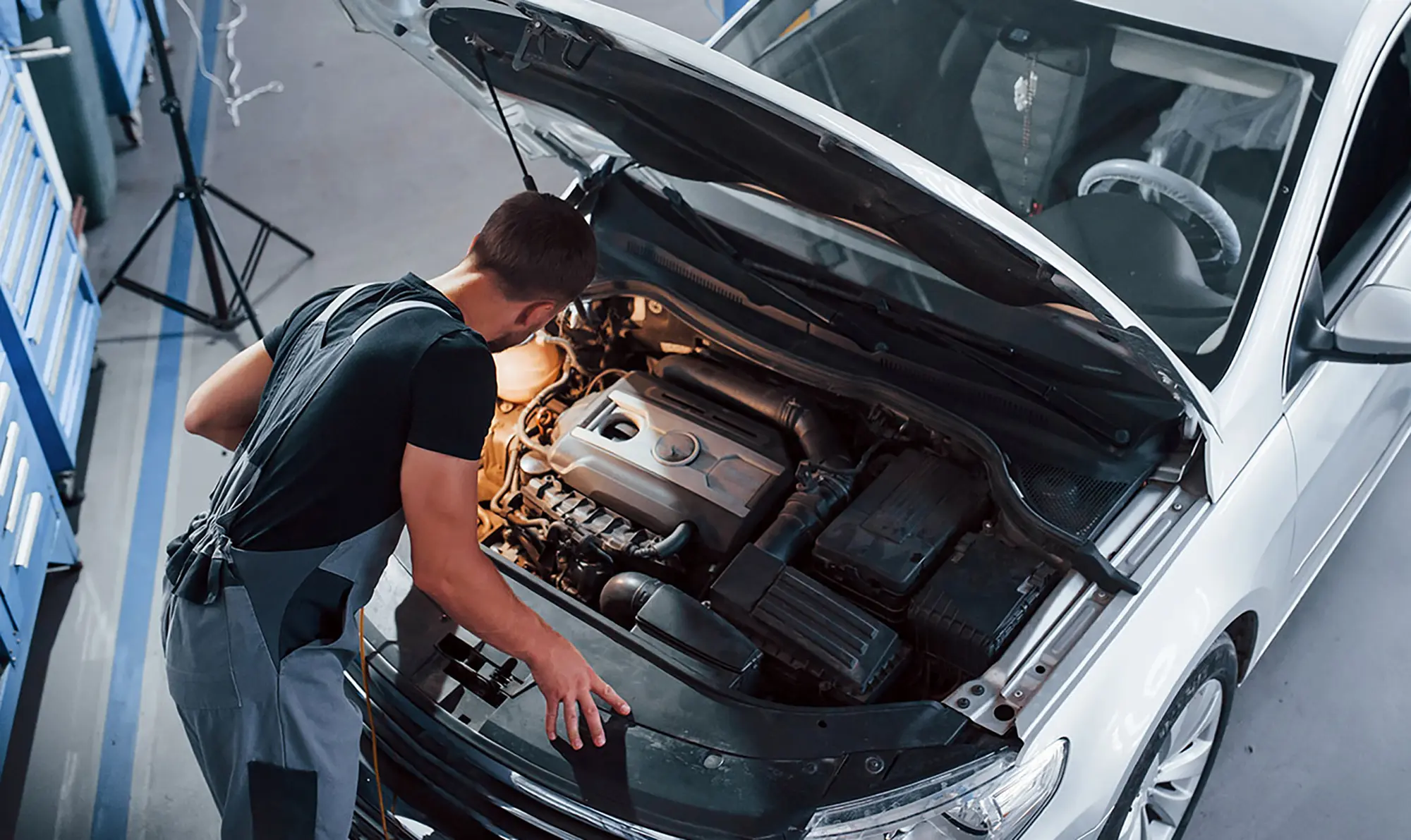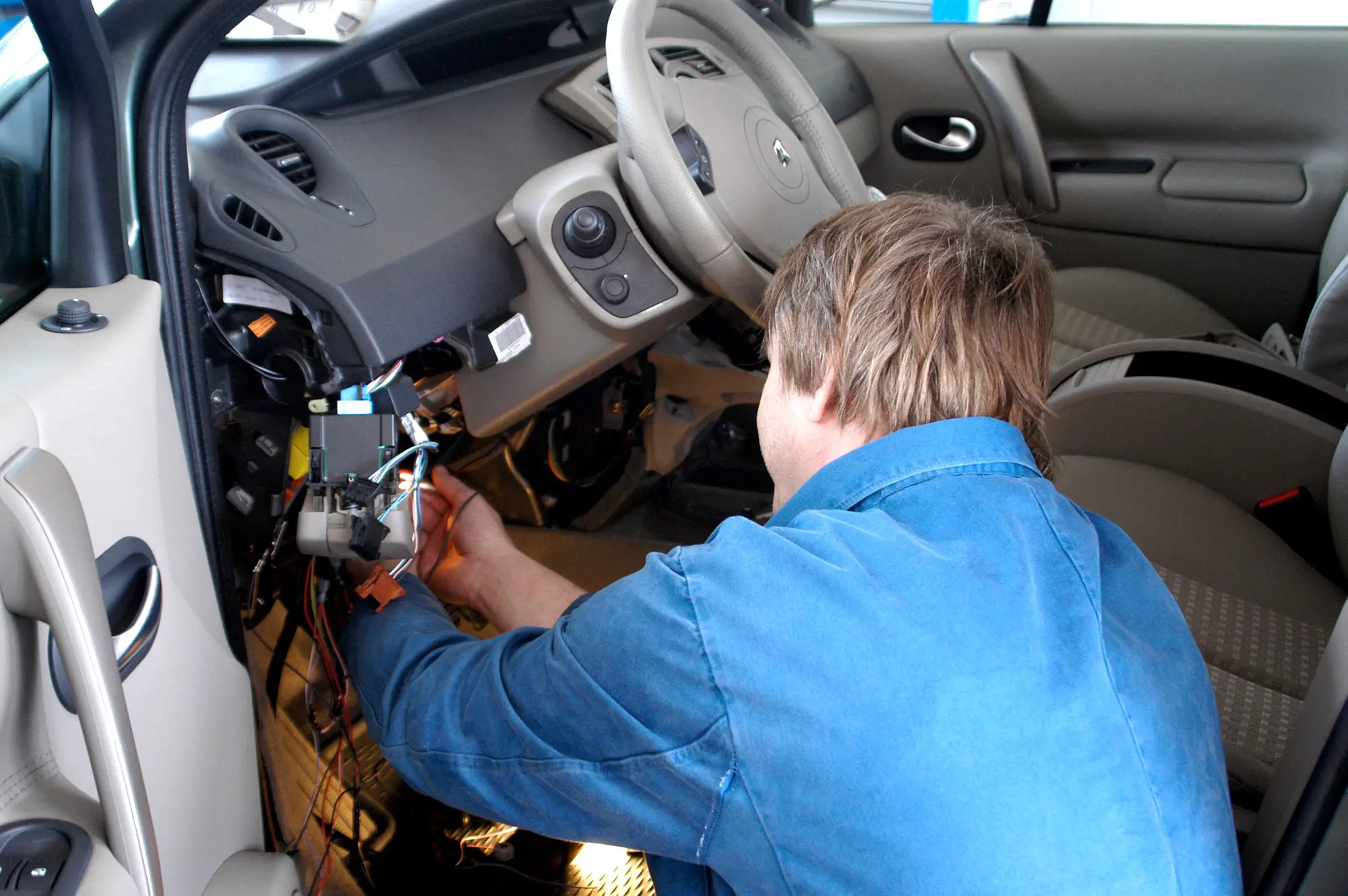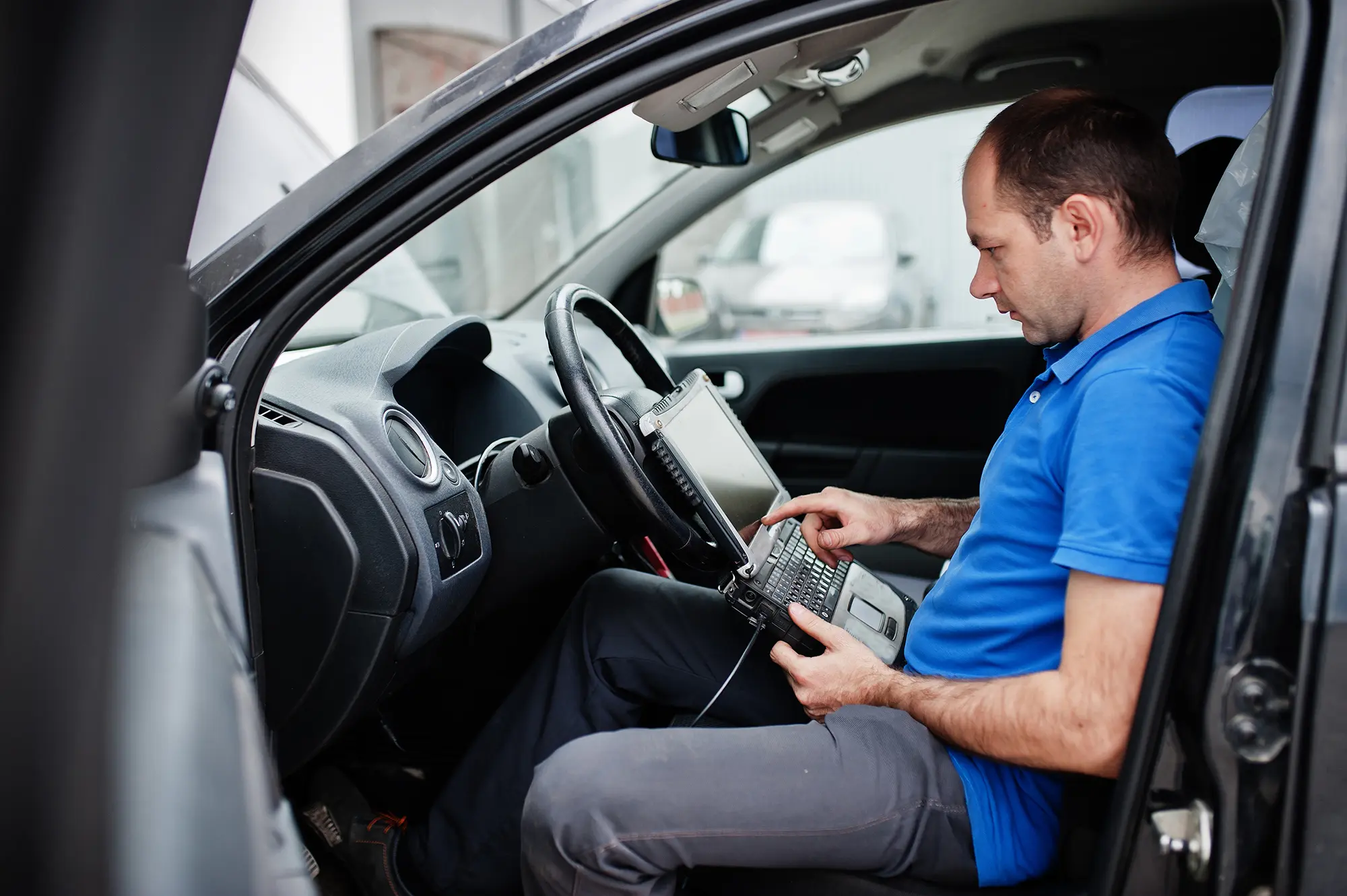Computer Diagnostics
Since 1984, we’ve been serving the greater San Mateo County including San Carlos, Redwood City, Atherton, Palo Alto, and Foster City, CA.
When driving becomes challenging because your vehicle sends confusing signals, know you’re not alone. At Holland Car Care in San Carlos, we look deep into the world of automobile computer systems. Before you’re lost in a maze of flashing warning lights and unexpected noises, let our expertise guide you. Here’s how we ensure your vehicle remains a reliable partner on every journey.


Leave a Message

Repair Services
AC REPAIR
BATTERY REPLACEMENT
COMPUTER DIAGNOSTICS
BRAKE REPAIR
ENGINE REPAIR
OIL CHANGE
TRANSMISSION REPAIR
TUNE UP
Repair Services
AC REPAIR
BATTERY REPLACEMENT
COMPUTER DIAGNOSTICS
BRAKE REPAIR
ENGINE REPAIR
OIL CHANGE
TRANSMISSION REPAIR
TUNE UP
Why choose Holland?
Welcome to Holland Car Care, your trusted auto repair shop situated in the heart of San Carlos, CA. With decades of experience, our highly skilled, certified technicians are passionately committed to delivering exceptional service, all with a focus on customer satisfaction.
EXPERIENCE
TRUST
DEPENDABILITY
CUSTOMER SERVICE
Real Google Reviews
POPULAR COMPUTER DIAGNOSTICS SERVICES

CHECK ENGINE LIGHT
Seeing the Engine Light can unsettle even the most seasoned drivers. This multifaceted indicator might signal anything from a minor hiccup to a more severe issue. Leveraging our top-tier computer diagnostics, we look into your car’s intricate brain, deciphering the cause behind that glowing alert. Our mission is to reveal the signal, offering clarity and peace of mind, ensuring that you’re not just back on the road but confidently cruising with the knowledge that your vehicle is in its prime condition.

ADVANCED TRACTION CONTROL
Today’s roads and conditions demand more from our vehicles than ever before. From wet, slippery streets after a sudden downpour to challenging terrains on off-road adventures, it’s essential that our cars can adapt and respond swiftly. That’s where advanced traction control systems come into play, dynamically adjusting power delivery to ensure optimal grip and stability. However, as these systems evolve, they incorporate an intricate web of sensors and electronic components. A slight malfunction can compromise their efficacy, potentially affecting vehicle handling and safety.

BATTERY AND CHARGING SYSTEM
As vehicles increasingly rely on electronics, a consistent power supply becomes vital. However, batteries and charging systems have their lifespan and challenges like any other component. Age, excessive draining, and extreme temperatures can wear out a battery, while alternators, belts, and voltage regulators can have issues. Telltale signs of a declining battery or charging system might include dimming headlights, a slow-cranking engine, or even unexpected warning lights on the dashboard.

ADVANCED DRIVER ASSISTANCE SYSTEMS (ADAS)
Contemporary vehicles are more than just machines; they’re technological marvels designed to keep drivers safe and enhance the overall driving experience. Boasting an impressive array of driver aids, from lane-keeping assistance to adaptive cruise control and automatic emergency braking, these systems represent the forefront of automotive innovation. However, with such intricacy comes the potential for minor glitches. Even a small misalignment or calibration error can disrupt the optimal functioning of these systems, compromising their intent and your safety. For instance, an improperly calibrated camera might misinterpret lane markings, or a malfunctioning sensor could affect the accuracy of collision alerts.

OXYGEN SENSORS
The oxygen sensor, a pivotal component in modern vehicles, is critical in ensuring this balance. Nestled within your car’s exhaust system, these sensors measure the amount of oxygen in the exhaust gases, sending this data to the engine’s computer. This feedback loop enables the computer to adjust the fuel mixture for maximum efficiency and reduced emissions. Over time, oxygen sensors can degrade or malfunction. Symptoms of a faulty sensor include decreased fuel efficiency, subpar engine performance, and an illuminated check engine light. A failing oxygen sensor can also increase emissions, potentially causing your vehicle to fail emissions tests.
